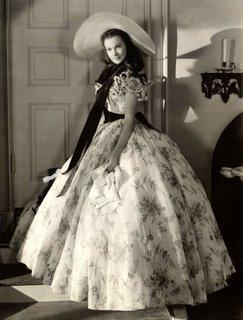Tuesday, November 4: High-Heeled Gumshoe
RETREATING INTO CREATIVE THOUGHT
by Melodie Johnson Howe
On this final day of one of the longest most frenetic campaigns for the presidency, I’ve retreated into thinking about creativity.
I’m not very good at talking about creativity and I certainly don’t like to talk out my plots. I’m a little like the native who is afraid to have his picture taken for fear it will capture his soul. For me, talking out a plot saps all the energy and newness out of it. When I hear my own voice spouting my story it suddenly sounds hackneyed. So I mostly remain silent until I have something written down.
John Floyd wrote about how he outlines. I am the complete opposite of John. When I have tried to outline I immediately rebel against it. I usually start with a fleeting image such as keys left in a front door. This then turned into the first sentence of What’s It Worth: “Emma Parker had left her keys in her front door.” Now I have to ask myself why did she leave her keys in the door? And slowly a story develops.
Or I can get a title before I even have an idea for a story. Leaving a Hollywood party I turned to my husband and said “Well, another tented evening.” He tells me that would be a great title for short story, and a short story is born. Not about a party, though that is the background, but about a confession of murder.
 I was fascinated by an image I had of a male corpse hidden under the full skirt of evening gown. This image of a dead man and the possibilities that an evening gown evokes intrigued me; but it also presented all kinds of problems. The skirt of the gown would have to be very full to cover a man of average height. And the dress would have to look like something out of Gone with the Wind. How could I make this work? It is these kinds of problems that lead me to characterization. Suppose this man is a young Hollywood star of physically small stature. He likes hookers dressed in fifties type prom gowns with full skirts. The dress then becomes an over-the-top extravaganza that a mother wants her daughter to wear. But why? This question brought me to my theme in The Good Daughter: a high powered Hollywood agent attempts to pimp her daughter to a young hot star she wants for a client.
I was fascinated by an image I had of a male corpse hidden under the full skirt of evening gown. This image of a dead man and the possibilities that an evening gown evokes intrigued me; but it also presented all kinds of problems. The skirt of the gown would have to be very full to cover a man of average height. And the dress would have to look like something out of Gone with the Wind. How could I make this work? It is these kinds of problems that lead me to characterization. Suppose this man is a young Hollywood star of physically small stature. He likes hookers dressed in fifties type prom gowns with full skirts. The dress then becomes an over-the-top extravaganza that a mother wants her daughter to wear. But why? This question brought me to my theme in The Good Daughter: a high powered Hollywood agent attempts to pimp her daughter to a young hot star she wants for a client.
John said he was not recommending using an outline and I am certainly not recommending my way. What is interesting is how the creative mind works. Some thrive with an outline others like me thrive without. But what is needed by all writers is an idea, plot, or image that stirs the imagination. John plots backwards. But I assume he must have an image and idea of an ending that has stirred him to proceed in reverse. (Alas I always watched movies from the beginning. I hated to come in the middle.)
My favorite part of writing comes after I have made it through the first draft without killing myself. Now that I know the end I can go back and make the connections and place the hints or clues that will make it all work. Sometimes the ending changes as the connections fall into place. A writer must always be ready for the unexpected, even with an outline.
I think you can tell I work more from mood or emotion than plot. An editor recently told me that she liked my work not so much for the mystery, but because of my observations. I think this reflects on how I write my stories. The plot is of course important, but my needs as a writer are elsewhere. A friend who has read my work asked why was I writing mysteries and not “straight” fiction? I told her I love the genre and it has boundaries. I may not write with an outline but I know there has to be a murder, or some act of crime or deception. And I know the crime must be resolved logically and emotionally by my main character. So within these constraints (if that’s what they really are) I can let my imagination go full force. In many mysteries, I feel characterization and voice have been given over to plot. On Criminal Brief we have writers such as JLW and John who are thorough plotters yet their characters and voice remain strong.
I am now writing a Diana Poole novel. It’s one thing to not have an outline when creating a short story but it makes the novel a daunting experience. So what do I do? I trick myself, I come through back door. I write scenes or vignettes pretending I’m not writing a novel, that I don’t have all those hundreds and hundreds of pages to fill. In other words I don’t start page one with “once upon a time … ” I begin with something that I want write to down. It might turn out to be page one or not. I make notes asking why has this character appeared? Why does Diana go swimming naked? And even if I don’t have the answers, I know that no character does something just because that is how it might happen in real life. Reality is no excuse in writing. And my job as a mystery writer is not only to tell one hell of a story but to make the connections that keep my characters compelling. I think it’s the same for all writers. For those who make outlines and for those of us who don’t. One does not preclude the other.
in real life. Reality is no excuse in writing. And my job as a mystery writer is not only to tell one hell of a story but to make the connections that keep my characters compelling. I think it’s the same for all writers. For those who make outlines and for those of us who don’t. One does not preclude the other.
I have good news. I’m honored that Doug Greene of Crippin and Landru will be publishing a collection of my Diana Poole short stories in 2010. God, what great company I’m in.




















Melodie — Sincere congratulations on your upcoming story collection! I look forward to reading it.
As for outlining, the thing that surprises me the most is that groups of writers always seem to be almost equally divided on the issue — about half outline (at least in their heads) and half don’t.
Alas, I wish my backward thinking happened only in my writing process . . .
As I read your piece, I was thinking: why doesn’t somebody collect those short stories? So I welcomed the surprise twist at the end. Congratulations.
John,
Thanks. I think you’re right, it is about equally divided.
My husband was fascinated by the fact you started at the end. Is that something that engineer/computer oriented men do?
Jon,
Thanks. Gee, I wrote an ending with a twist without trying to. I wish I could do that all the time.
News about the upcoming collection and novel is just plain great!! A perfect twist!
Melodie — Tell Bones I actually don’t always start with the end; but I sometimes do. What I always do, though, is have the whole story pretty much planned out before I ever write the first word. (And yes, it does often change direction after I get going.)
By the way, we backward-thinking folks don’t sing NOEL, NOEL at Christmas — it’s LEON, LEON.